WHO Bahrain: Scaling Up the Healthy Cities and Health-Promoting University Initiatives in Bahrain
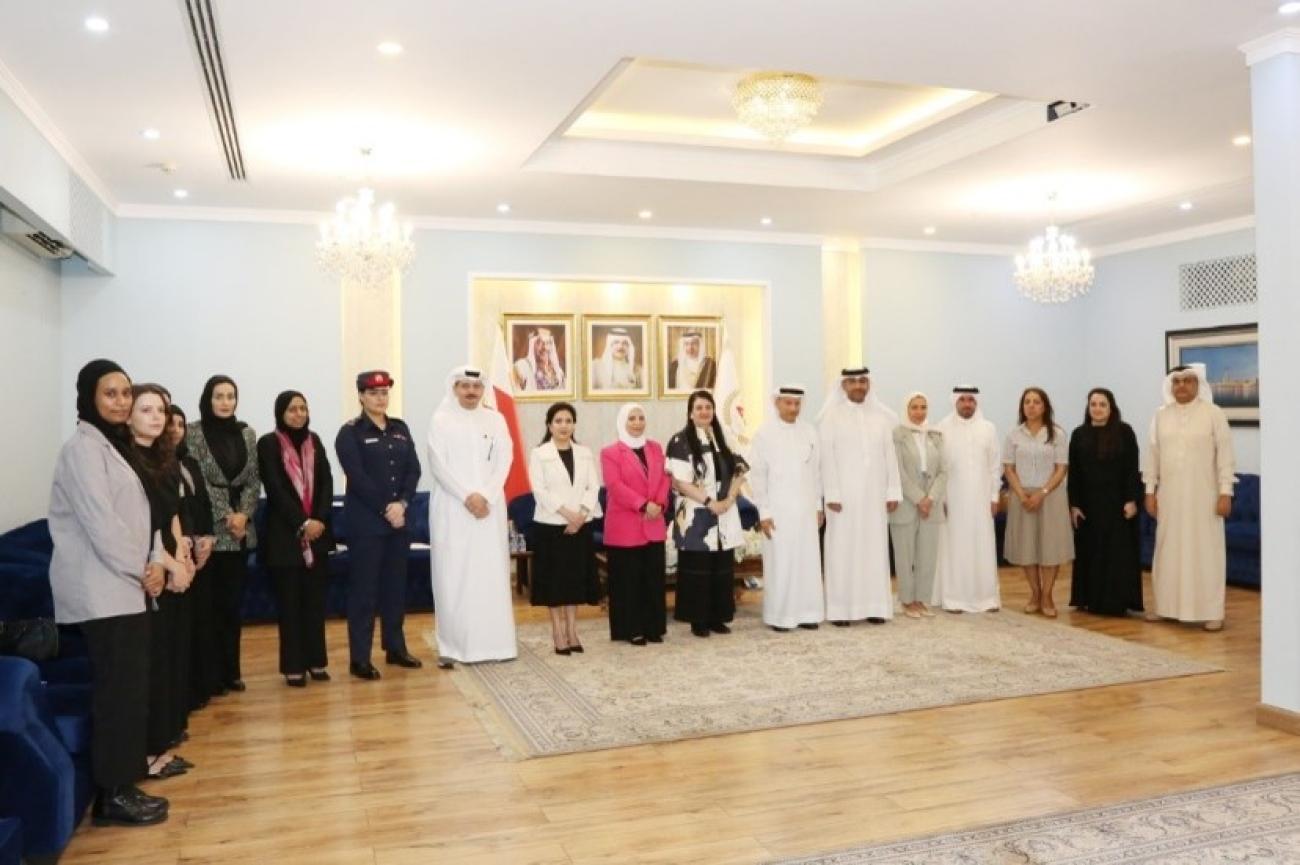
The Healthy Governorate Initiative and the Health-Promoting University Programme
Bahrain's Capital and Northern governorates on the road to becoming healthy governorates
The Capital and the Northern governorates received joint regional and country evaluation teams in August and November 2024, respectively, to assess their eligibility for the Healthy Governorates status. The evaluation teams included WHO experts from the regional and country offices, representatives from the Ministry of Health, and the WHO Collaborating Centre for Healthy Cities in Riyadh, Kingdom of Saudi Arabia. These in-country evaluations came after a joint technical team from the Ministry of Health and WHO Bahrain visited the Capital governorate office in May 2024 and the Northern governorate office in July 2024 to guide the completion of the self-assessment.
The self-assessment involves 80 indicators across nine domains, including community organisation and mobilisation, intersectoral collaboration, availability of information, and environmental health.
During the field visits, the joint evaluation teams visited several healthy city implementation sites, where they observed programmes, interacted with community members, and reviewed documents to understand the governorates' role in creating supportive and enabling urban environments for health and promoting healthy living for all. Cities achieving over 80% receive the designation certificate from the WHO Regional Office for the Eastern Mediterranean and are re-evaluated every three years.
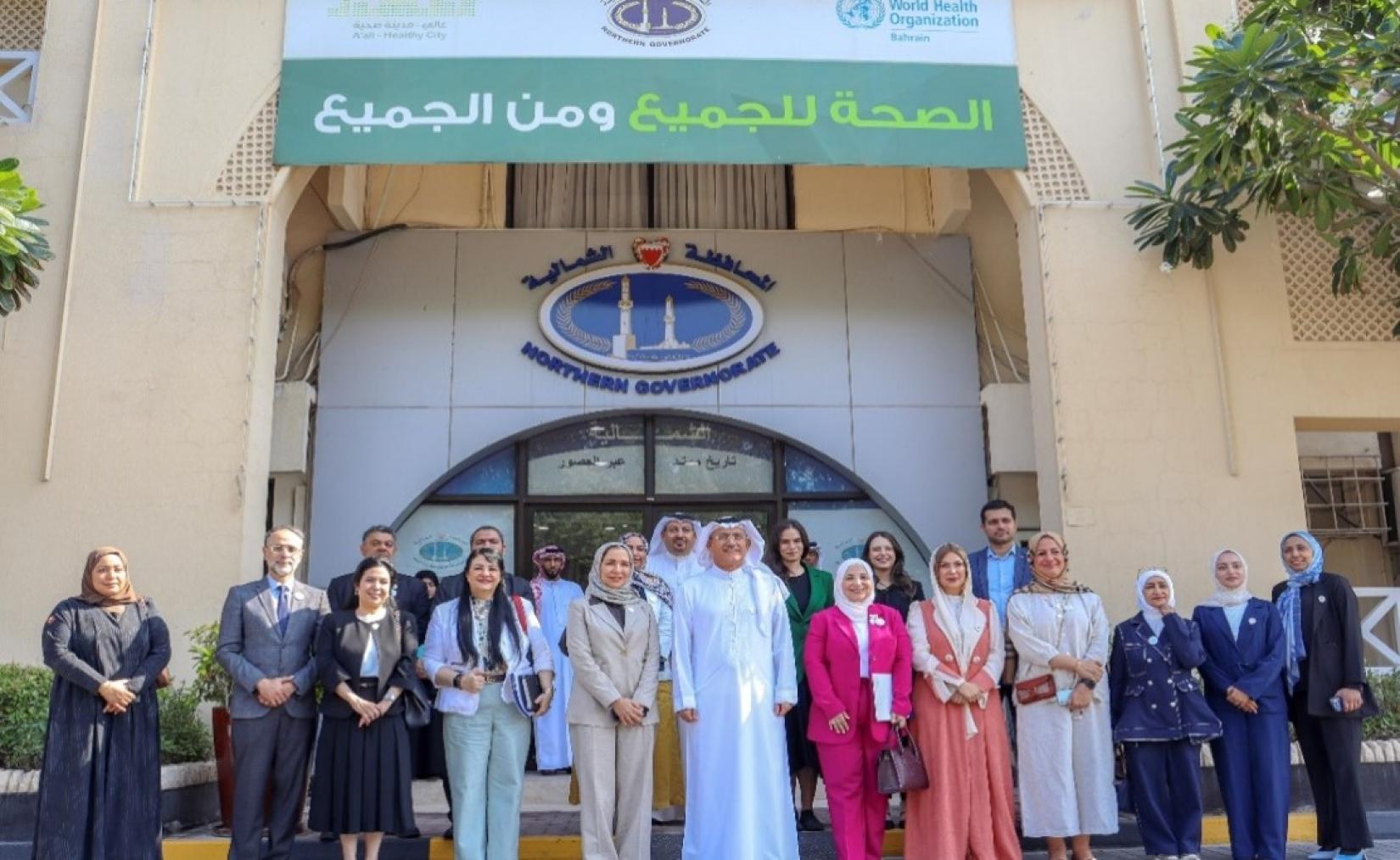
representatives from the Ministry of Health, during the external evaluation of the Northern
Governorate. Photo credit: WHO / WHO Bahrain.
The American University of Bahrain makes significant strides towards achieving Health-Promoting University status
A joint regional and country evaluation team conducted a field visit to the American University of Bahrain (AUBH) to assess its eligibility for Health-Promoting University status. The team included WHO experts from the regional and country offices and representatives from the Ministry of Health, Higher Education Council, and WHO Collaborating Centre for Healthy Cities in Riyadh, Kingdom of Saudi Arabia.
During the field visit, the joint evaluation team interacted with AUBH staff and students, observed programmes, and reviewed documents to understand the university’s role in creating and promoting a health-conducive working and learning environment.
Once designated, AUBH will join five other Bahraini universities that received distinction in 2023: Ahlia University, Arabian Gulf University, Kingdom University, Royal College of Surgeons in Ireland—Medical University of Bahrain, and University of Technology Bahrain.
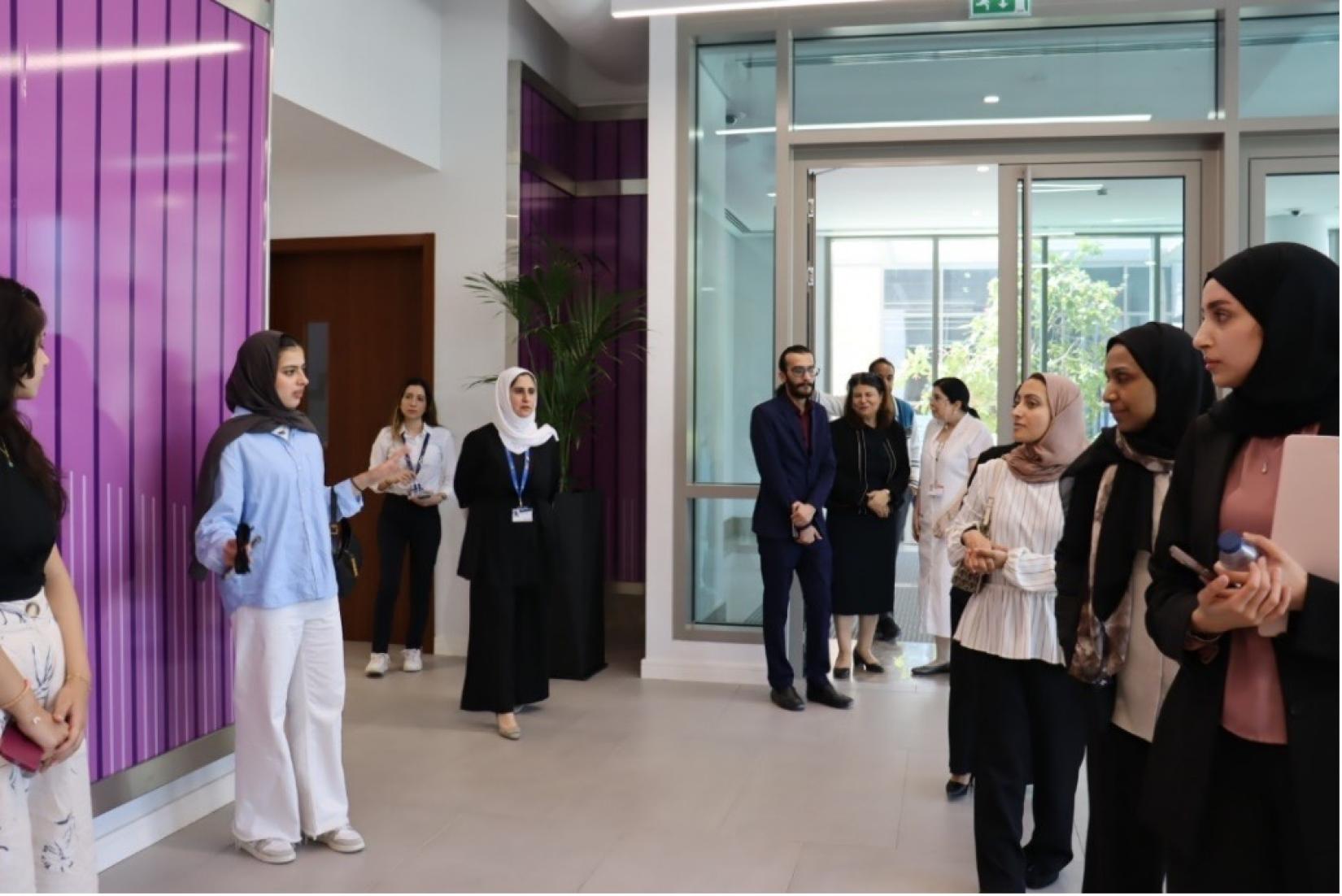
WHO conducts one-day workshop to bolster Health Promoting Universities in Bahrain
WHO, in collaboration with the Ministry of Health and Higher Education Council, conducted a one-day workshop at the American University of Bahrain to introduce the Health Promoting Universities Programme to academic institutions in Bahrain.
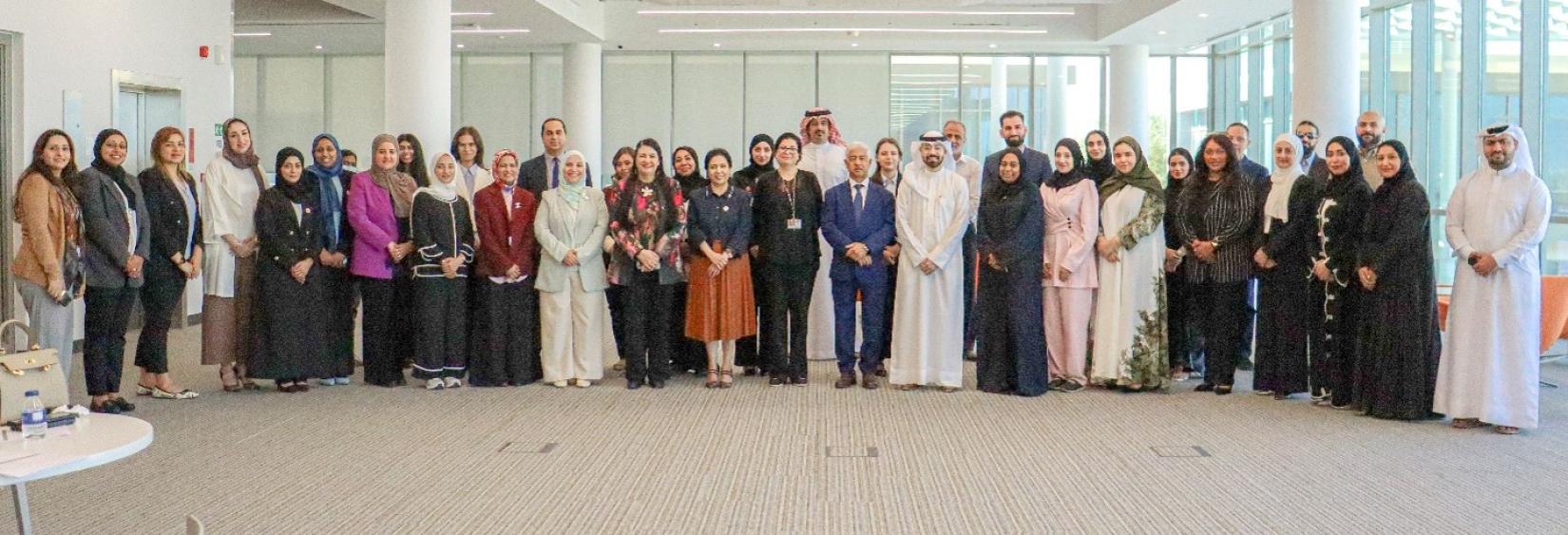
credit: WHO / WHO Bahrain.
The workshop was inaugurated by Dr Wafa AlSharbati, Director of Health Promotion, and Dr Tasnim Atatrah, WHO Representative, and delivered by experts from the WHO Regional Office for the Eastern Mediterranean. It allowed more than 40 participants from different academic institutions to gain first-hand access to the Health-Promoting Universities Programme, exchange ideas and experiences, and learn more about the designation process.
The WHO Health-Promoting Universities Programme, derived from the Healthy Cities Programme, targets social determinants of health in academic settings, enhancing health and well-being among students, staff, and the wider community. In the Eastern Mediterranean region, academic institutions are awarded the Health-Promoting Universities status based on a self-assessment and in-county evaluation. To qualify, a university must commit to activities that promote health equity and complete an assessment.
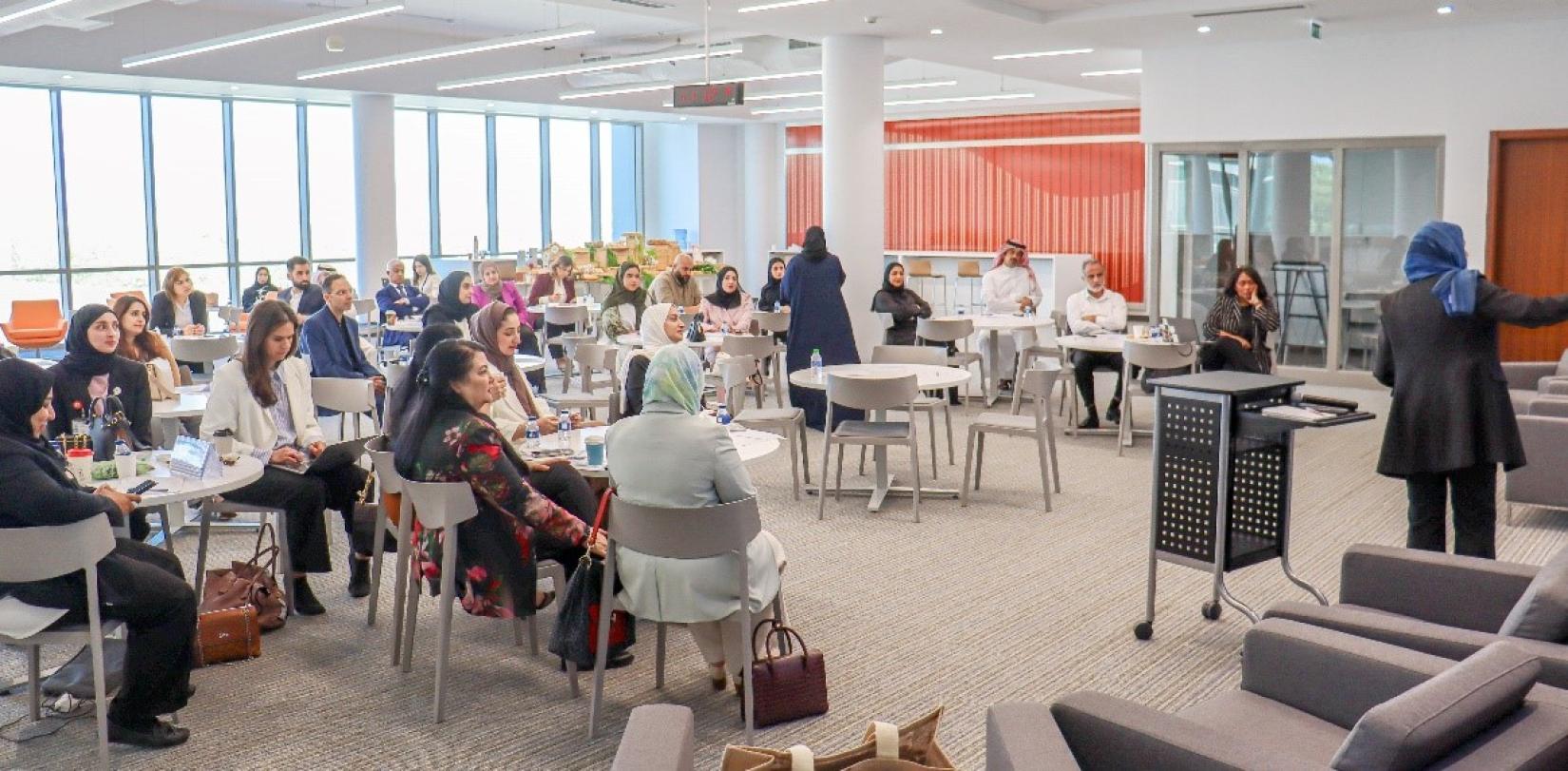
Programme”. Photo credit: WHO / WHO Bahrain.
The self-assessment involves a set of indicators across six domains, including university environment, promotion of healthy lifestyles, emergency preparedness and response, and community participation and sustainability. Universities reflect on the indicators, and a joint WHO regional and country evaluation team conducts a field visit. Universities achieving over 80% receive the designation certificate and are re-evaluated every three years.




